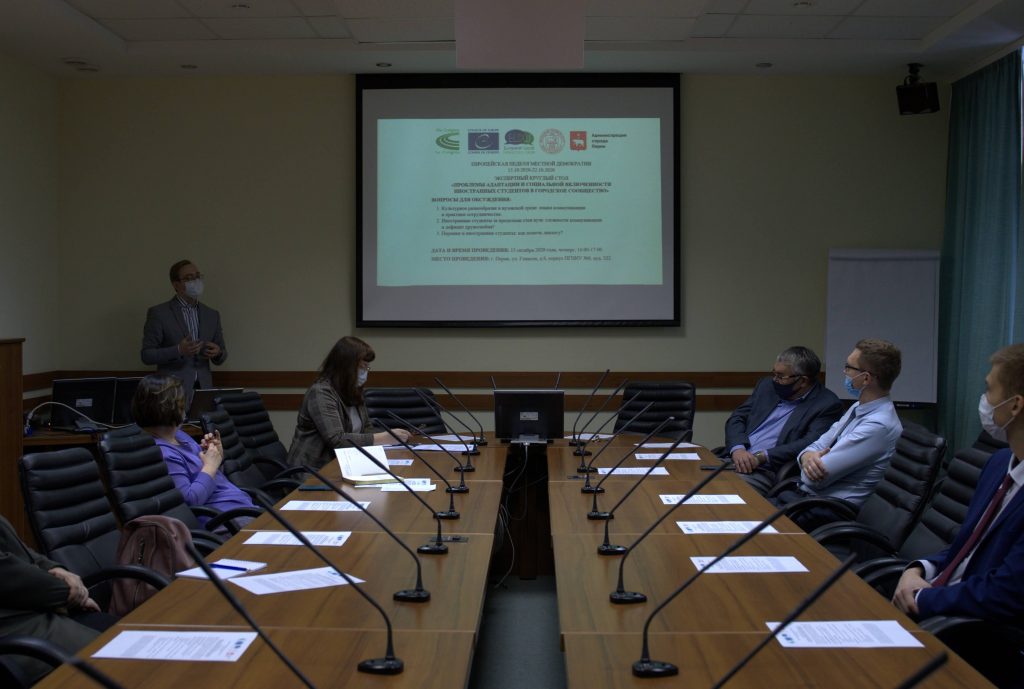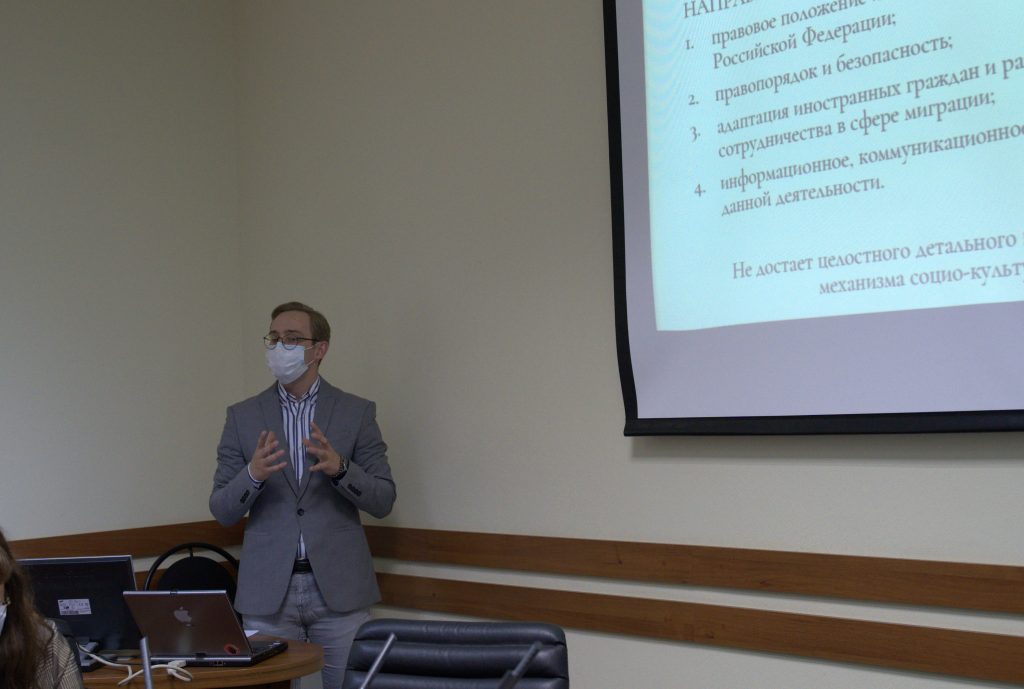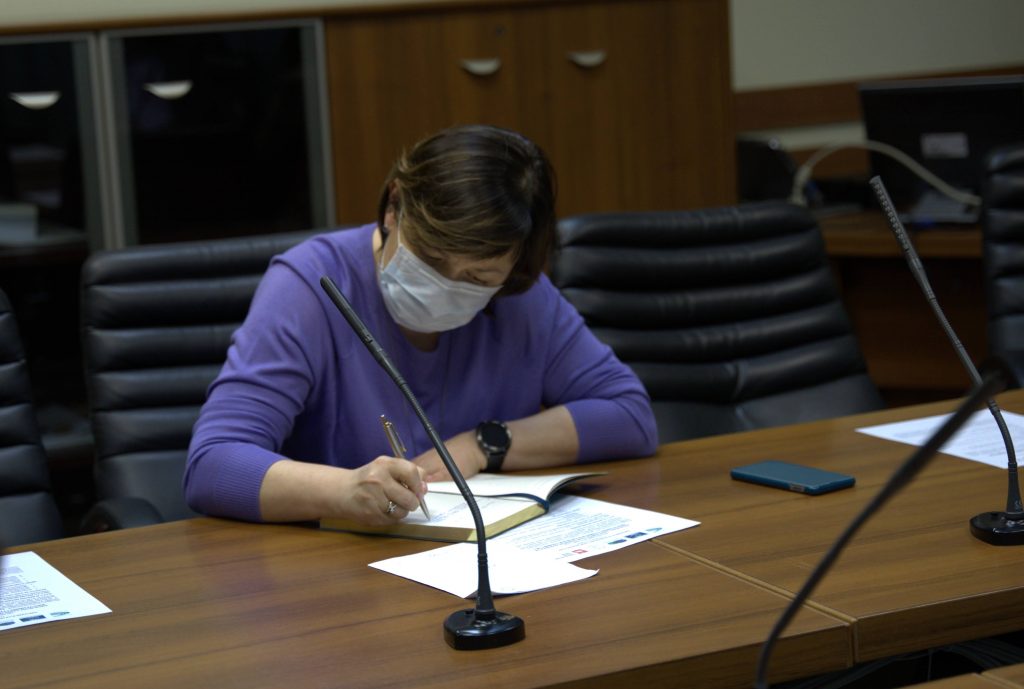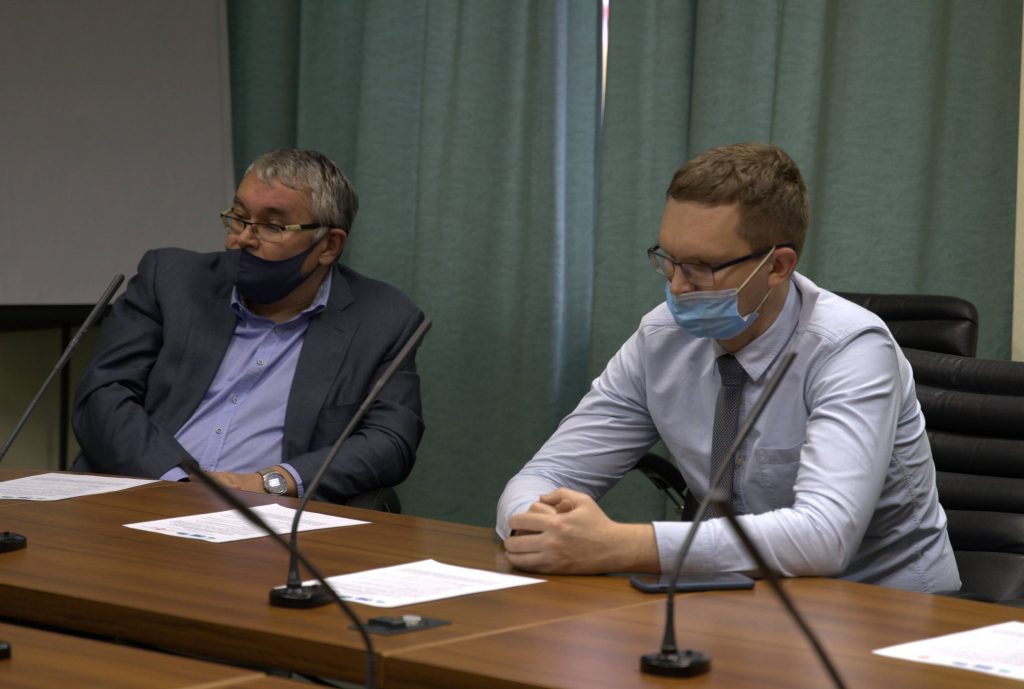On 15 October, an expert Roundtable “Problems of Adaptation and Social Inclusion of International Students in the Urban Community” was held at Perm State National Research University (PSU), as part of the European Week of Local Democracy. The meeting was attended by representatives of higher educational institutions of Perm and local authorities.
The participants of the Rountable discussed the issues of cultural diversity in international educational space, shared techniques and examples of communication practice with foreign students, both in the university environment and beyond. According to official restrictions, to study at a Russian university, foreign applicants must learn Russian and pass the necessary preparatory exams.
After completing a 10-month preparatory course of Russian language, offered by PSU, foreign applicants may apply to any university in Perm region or Russian Federation. In the process, the course students become more open to new experiences and are less inclined to lock themselves within the same national groups.
An example for a complex yet effective solution to the problem, offered by local universities, are student ‘springs’ and particularly the We Are International Student Festival, initiated by PSU graduates. Frequent are the cases of international students choosing graduate and postgraduate courses for future academic profession; others seek to get a job in international trading companies or return home to run a family business.
A special topic of discussion was a recent Russian law allowing foreign students to get a job in Russia. It is no secret, that many international graduates are looking for opportunities to live and work in Perm. Their integration into the life of the local community is invariably associated with the solution of the ‘enclave’ issue and requires the involvement of city and regional authorities, a dialogue outside campus, and more precisely the joint efforts of universities and the urban community.
The Roundtable participants agreed that areas of foreigners’ accommodation, the newly planned complexes of dormitories should rather stand for the ‘growthpoints’ – a place for cultural dialogue, joint creative projects, promotion of national cuisine and culture – rather than a ‘ghetto’ cliché. This requires an equal participation of Perm citizens – like adopting the idea of a ‘student city’ or a ‘cultural capital’, serving the significance of the entire community.
Several Perm-based universities took part in the Roundtable: Perm State National Research University (PSU), Perm National Research Polytechnic University, Perm State Humanitarian Pedagogical University, Perm State Agrarian Technological University, as well as representatives of the Youth Parliament of the City of Perm, and the department of international and intermunicipal relations of the Administration of the city of Perm.
In 2020, the slogan of theEuropean Local Democracy Weekis “Local Democracy: Building Confidence!”. The aim of the initiative is to share local governments’ best practices and draw citizens’ attention to the fact that their participation in local affairs is essential to the sustainability of democracy. The detailed information on the events of the European Local Democracy Week and the Council of Europe leaflet with information about the project in Russian can be found at: http://www.congress-eldw.eu/en/page/233-download-leaflet-in-russian.html






